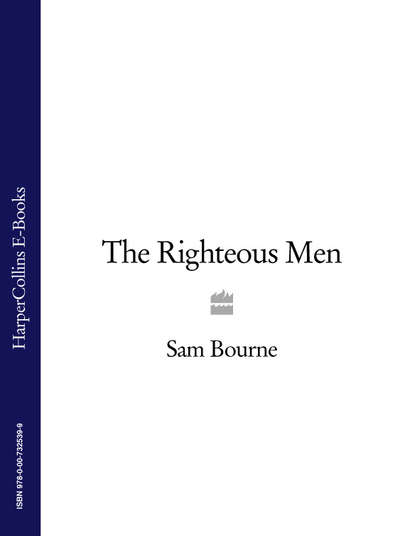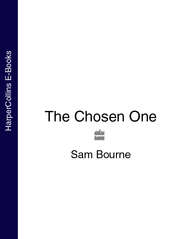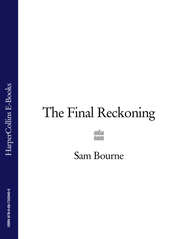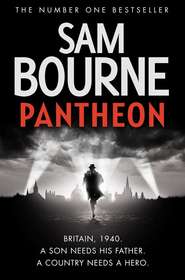По всем вопросам обращайтесь на: info@litportal.ru
(©) 2003-2024.
✖
The Righteous Men
Автор
Год написания книги
2018
Настройки чтения
Размер шрифта
Высота строк
Поля
‘And yet his son is called Howard.’
‘I told him it was because I always liked the name. But I know the real reason, and that's good enough. Howard is a name my boy can wear with pride. I'm telling you Mr Monroe: the man they killed last night may have sinned every day of his God-given life – but he was the most righteous man I have ever known.’
CHAPTER FIVE (#u2b9e830b-8bca-5e82-a051-eb82c106fdca)
Saturday, 9.50pm, Brooklyn That night in the kitchen where they did all their talking, Will followed traditional custom. Beth was cooking pasta, he was tagging along behind her, washing each pan and spoon as she finished with them. This was smart strategy, he reckoned: forward planning, prevent the washing-up mountain after dinner. Will was talking Beth through his day.
‘The guy's a scumbag pimp, but when he sees this woman in distress, he sells his most personal possessions to help her. A woman he doesn't even know. Isn't that incredible?’
Beth was stirring, saying nothing.
‘I'm not sure what Glenn will make of it, but this woman, Letitia, felt Macrae had saved her life. That he had saved her. That's something isn't it? I mean, that will make a piece.’
Beth seemed faraway. Will took that as a sign of success, as if his point had struck home, stunning his wife into contemplative silence.
‘Anyway, enough about that. How was your day?’
Beth looked up, her stirring hand stilled. She held him in a long, cold gaze.
‘Oh Christ, I just realized—’ Beth's note from this morning. Big day today. He had read it and forgotten it. Instantly.
Beth said nothing, just waited for him to explain himself.
‘I went straight to work and then I got stuck into this story. I must have had my phone on silent while I was interviewing that woman. Did you call?’
‘“I just realized.” How can you say that? You can't “just realize” this, Will. That's not how it works. Not this.’
She was speaking with that voice of iron calm which almost scared Will. It was reserved for when Beth was truly furious. He imagined she had acquired this kind of steel as part of her psychological training: never lose your cool. He admired it in the abstract, but could not bear to be on the receiving end.
‘I've been thinking about nothing else for weeks and you “just realized”. You completely forgot!’ Now the volume was rising. ‘You had all day—’
‘I was working—’
‘You're always working or thinking about work. You don't even remember what should be the most important thing in our lives, and I can't eat or sleep or shower or do anything without thinking about it.’ Her eyes were reddening.
‘Tell me what they said.’
‘You don't get off that easy, Will. If you wanted to know what they said, you should have come to the hospital with me. You should have been there with me.’
Each of those last four words were heavy as anchors. Of course he should. How could he have forgotten? It was true what she said: he had thought about nothing but this story from the moment he woke up.
He knew he needed to break out of this procedural stage of the conversation – why had he missed the appointment? – and move fast onto the substance: what had the doctors said? But how to make the shift? There was only one person he knew who would instantly understand how to pull off such a conversational manoeuvre, what psychological trick to play. That person was Beth.
‘Babe, I am completely in the wrong. I can't believe I missed that appointment. And I don't deserve to know what happened. But I really want to. We will talk about this whole other thing – me obsessing about work – I promise. But, right now, I think you should just tell me what happened.’
She was sitting now, still holding the wooden spoon. In a barely-audible whisper, as if the air had been sucked out of her, she finally spoke. ‘They didn't examine me; it was just a “chat”. And they said we should keep trying for another three months before they'll consider treatment.’ She sniffed deeply, reaching for a tissue. ‘They said we are both perfectly healthy, we should give it more time before “taking the next step”.’
‘That's good news, isn't it?’ said Will, half-aware that this was a tactical error – the premature move into cheer-up mode before the silent, listening phase was complete. Rationally, he knew that what Beth needed most was to talk, to get it all out. Not to have to argue, explain or defend anything. He knew that in his head, but his mouth had had different ideas, instantly wanting to make things better.
‘No, as it happens, I don't think it is good news, Will. I don't think it's good news at all. It just makes it more fucking mysterious. If my eggs are so perfect and your sperm is so fucking tip-top, why the hell CAN'T WE HAVE A BABY?’
She threw the wooden spoon at the wall, where it splattered tomato sauce into a Jackson Pollock pattern, turned and fled for the bedroom. Will chased her, but she slammed the door. He could hear her crying.
How could he have screwed up so badly? He had promised they would go to the clinic together, that he would take an hour or two out during the afternoon. Instead he had gone to work and clean forgot about everything else for the rest of the day. He had even sent a BlackBerry message – about work – to Beth at the time of the appointment. He knew what his psychologist wife thought. That he was throwing himself into his career to avoid dealing with the real issue: four years of marriage, two years of unprotected sex and one year of serious ‘trying’ – and still Beth was not pregnant. Will knew it looked like that, but she was wrong. This was not some new phase. He had always been ambitious. Even at college, he had worked hard: when he was not editing Cherwell he was trying to hawk tales of university life to Fleet Street. That was what he was like.
The phone rang.
‘Will?’
‘Oh, hi, Dad.’
‘I was just calling to see if you enjoyed the concert.’
‘Yes, of course. I loved it,’ Will said, running his fingers through his hair and facing the floor. How could he have been so stupid? ‘I should have called. Amazing choir.’
‘You sound subdued.’
‘No, just tired. It's been a long day. Remember that thing I was called out on after the concert, that killing? I had this idea to take what everyone thinks is a bog-standard murder and see what really happened. “Portrait of a crime statistic”, the life behind the death, that kind of thing.’
Beth's presence behind the slammed door of their bedroom was burning up the apartment. Surely he should be going over there, talking through the door, coaxing her back out. Or at least coaxing his way in.
‘That's good thinking. What did you find out?’ ‘That he was a low-life pimp sleazeball.’ ‘Well, I guess that's no great surprise. Not in that place. Still, I can't wait to read your IMF piece: much more you, I suspect. Listen, Will, Linda's gesturing. It's a dinner for Habitat – “you know who” is here – and we're expected to mingle. Speak soon.’
Even on his nights off, thought Will, his father and his ‘partner’ – a word Will could not bring himself to utter except in quotation marks – were doing something morally worthwhile. Habitat for Humanity was one of his father's favourite charities. ‘I like the idea of a cause that asks you to give your time and your labour, not just your money,’ Monroe Sr had said, more than once. ‘They ask you to open your heart, not just your pocketbook.’ Hanging in the judge's chambers was a photograph of himself and the former president – ‘you know who’ – each midway up a ladder, both clad in lumberjack shirts, the ex-president holding a hammer. They were taking part in one of Habitat's trademark events: building a house for the homeless in a single day. In Alabama or somewhere.
He wondered about all this great do-gooding fervour of his father's. In fact, he was suspicious of it. The most cynical reading was that it was merely a career move, designed to burnish William Monroe Sr's image as a man of fine character, eminently suited to a place on America's highest bench. More specifically, Will wondered if his father was trying to improve his chances with the evangelical Christian constituency that were such key players in the nomination of judges to the Supreme Court. Some of his father's rivals were committed, vocal Christians. A secular liberal like William Monroe Sr could not match that, but if he could smooth out some of his hard, godless edges, it could only help. That, at least, was his son's guess.
Will tiptoed over to the bedroom, creaking the door open just a crack. Beth was fast asleep. He closed the door; recovered what was left of the pasta and ate it from the saucepan. He felt as if a high wall had just appeared in their apartment – and he and his wife were on opposite sides of it.
He reached for the remote and jabbed on his default channel: CNN.
‘International news now, and more trouble in London for Britain's finance minister, Chancellor of the Exchequer Gavin Curtis, today under fire from the Church. The Bishop of Birmingham took to Britain's House of Lords to step up the pressure.’
Will sat up to take a close look. Curtis looked harried and much older than Will had remembered him. He had come to Oxford when Will was a student. Curtis was then in opposition, shadowing the environment department. He had come up to act as lead speaker in an Oxford Union debate: ‘This House believes the end of the world is nigh.’ Will was then the news editor on Cherwell – and he had given himself the plum assignment of interviewing the visiting politician.
He had not thought about it in years, but at the time Curtis had left quite a mark. He had taken Will seriously, treating him as a real journalist when Will could not have been much more than nineteen. The funny thing was Curtis had not seemed like a politician at all, more like a teacher. He had constantly peppered their conversation with references to books and films, wondering if Will had read some obscure Dutch theologian or seen a new and controversial Polish movie. Will had left their conversation feeling inadequate but also convinced Curtis was destined for oblivion: he seemed too intellectual for the blood sport of high politics. As his former interviewee had risen through the Cabinet, Will became embarrassed by his own lack of political foresight.
CNN was now showing a clip of a white-haired cleric in a grey suit with just a slice of purple showing underneath. The bishop's face, flushed with wrath, seemed to be trying to match the colour of his shirt. CNN identified him as the leader of the British equivalent of America's Church of the Reborn Jesus, a fiercely moral wing of Christian evangelism. ‘This is a sinful man!’ he was saying of the Chancellor, to the murmured rhubarb of agreement and disagreement in the chamber. ‘If it is true that he has been embezzling from the public purse, he must be cast out!’
Will turned it off and went to the computer. Beth would sleep till morning now. He thought about waking her up so they could talk some more. They had a rule: never go to bed on a fight. But she was so deeply asleep he would hardly score any points by disturbing her now. He had seen how she looked. She could wear a dozen different expressions in the course of the night: serene, brow furrowed, even ironic amusement. More than once, Will had been woken by the sound of his wife laughing in her sleep at some secret joke. But just now, even with her autumn-brown hair falling over most of her face, he spotted what he feared was a worry line in her forehead, as if she was concentrating hard. He imagined smoothing it away, with just a touch of his hand. Perhaps he should go back in and do just that. No, he thought. What if she woke up and their row reopened? Better to leave it be.
Might as well pull an all-nighter instead, write up the Macrae story and deliver it first thing. At least that would impress Harden. And it would be an excuse not to go into the bedroom.
At the keyboard, his mind kept wandering away from Letitia, Howard and the streets of Brownsville. He knew what Beth wanted and biology, or something, was standing in their way. He had been encouraged by the hospital's attitude: give it time. But Beth was not used to being a patient. She liked to sit in the other chair. And she wanted clarity: a diagnosis, a course of action.
Besides, he knew, getting pregnant was only part of the story. Beth had become irritated by his professional single-mindedness, his determination to make his mark. When they first met, she would say how much she liked his drive; she found it sexy. She admired his refusal to coast along, to trade on his father's prestige. He had made things difficult for himself – he could have gone back to America when he turned eighteen and used the family name to breeze into Yale – and she admired that. Now, though, she wanted the ambition to cool down. There were other priorities.
He finally crashed out just after four am. He dreamed he was on a boating lake, pushing a punt like some cheesy gondolier. Facing him, twirling a parasol, was a woman. It was probably Beth but he could not quite see. He tried squinting, determined to make out the face. But the sun was in his eyes.











